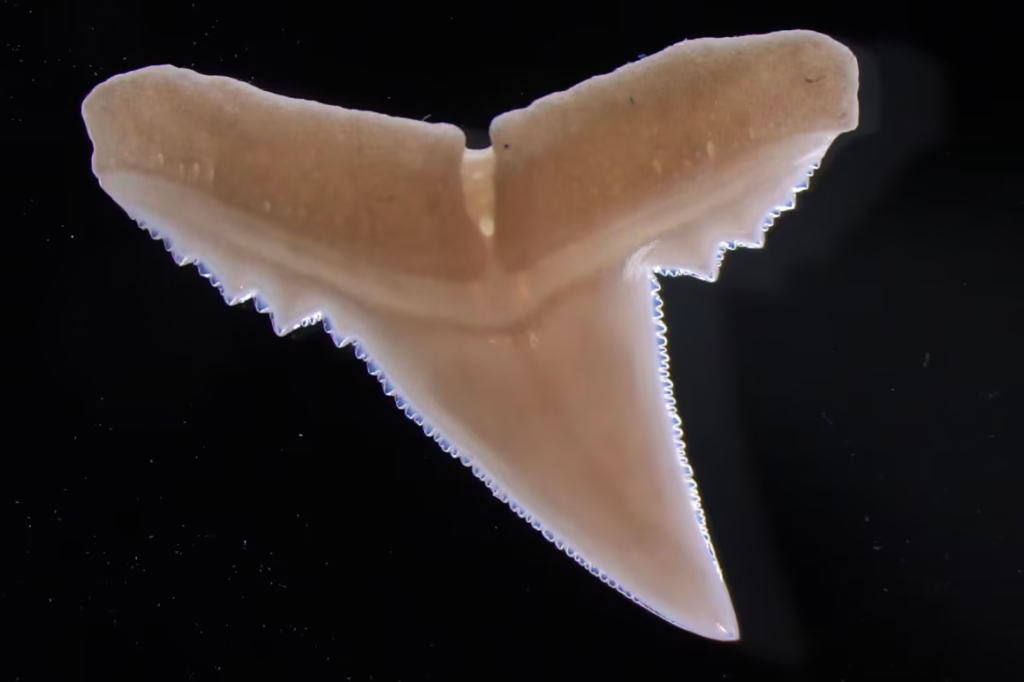A new study has revealed that rising ocean acidification could erode shark teeth, putting one of nature’s most efficient predators at risk. Researchers in Germany tested the effects of more acidic seawater on naturally shed teeth from blacktip reef sharks. They compared teeth kept at today’s average ocean pH with those placed in water conditions expected by the year 2300 if carbon dioxide emissions continue to rise.
After just eight weeks, the teeth exposed to the future conditions showed about double the damage compared to those in normal seawater. Scientists observed cracks, surface corrosion, and the erosion of serrated edges that sharks rely on to grip and slice through prey. While sharks continually replace their teeth throughout their lives, the study warns that if acidification worsens, the damage could outpace regeneration, particularly for species with slower tooth replacement.
The research highlights that ocean acidification is not only affecting corals, shells, and plankton but could also harm top predators. For sharks, losing the effectiveness of their teeth means difficulty in catching food, weakened survival chances, and disrupted roles in maintaining balance in marine ecosystems. Although the experiment was conducted on discarded teeth and does not fully represent how living sharks might repair or resist damage, scientists stress the results are a warning sign. Sharks swimming with open mouths continually expose their teeth to seawater, making them vulnerable to chemical changes in the ocean.
This discovery adds to the mounting evidence that unchecked carbon emissions are destabilizing the ocean environment in unexpected ways. If action is not taken to reduce global CO₂ levels, the world’s most iconic predators could one day lose their bite—threatening the health of entire marine ecosystems.


